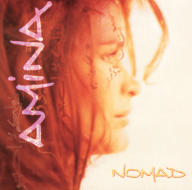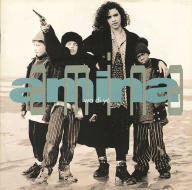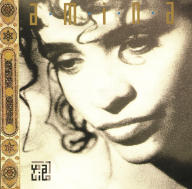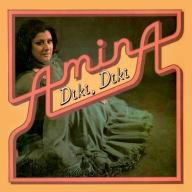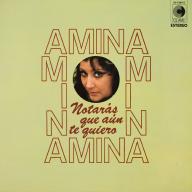Amina
Biography
In the family of Amina Annabi, music was always a female thing. Growing up in Tunisia, she heard her mother sing (at home, since no self-respecting woman would sing in public), while her grandmother played the oud. From them she learned traditional Maghrebi music. When Amina was 12, the family moved to France in search of better economic opportunities, and suddenly she was exposed to vastly different music and culture. She began attending the Conservatory, and undergoing real voice training. However, her first recorded exposure wasn't as a singer. Instead, in 1984, at the age of 24, she emerged as a rapper, dropping science over a Grandmaster Flash track that was released only in France, and which didn't make her into an overnight success. That would have to wait three more years, until her debut album, Yalil, which was produced by Martin Meisonnier, the man responsible for so many Paris-based world music hits. The album contained the sultry single Belly Dance, which marched up the French charts on the basis of its sexy rhythm and a sample taken from James Brown's Cold Sweat. But Amina's leap to superstardom didn't arrive until 1991, when she represented France in the Eurovision Song Contest, the first Arab to do so, making her a cultural icon. Her song Le Dernier Qui A Parle (co-written by Senegal's Wasis Diop, and with strong West African overtones) had strong political overtones in the year of the Gulf War, even more so when it won. "It was the Gulf War, and I was representing the Arabs in France," she recalled. "If the words hadn't been political, I wouldn't have gone; that was very important to me." From there she sang with Diop on his own album and backup for the legendary Manu Dibango before releasing her own Wa Di Ye in 1992, with Diop drafted in as co-producer beside Meisonnier to expand the album's musical palette. A best-seller, it brought her something greater -- prestige, when she was awarded the Chevalier des Arts et des Lettres decoration for the record. From there she retreated a little from her musical stardom, opting to work in movies (she appeared in #The Advocate and #Sheltering Sky), and doing work on soundtracks such as Dead Man Walking, where she duetted with Nusrat Fateh Ali Khan. Amina was also stretching herself by singing with a range for people from Lenny Kravitz to Lilac Time and Malcolm MacLaren. Eventually, though, she was ready to return to the studio and make her third record, Annabi, released in 1999. This time around, the influence of dance music was quite apparent, brought to the fore by producers like Renegade Soundwave and Mark Saunders. But some tracks had a huge Arabic influence, such as her cover of My Man, the torch song often associated with Billie Holiday. Dis-Moi Pourquoi returned her to the singles charts. After that, she happily returned to exploring music, collaborating with ex-Eurythmic Dave Stewart, classical bad boy violinist Nigel Kennedy, and even Moroccan DJ U-Cef. In 2001 Best of Amina was released in the U.S., and she took part in the Vive Le World tour. ~ Chris Nickson, Rovi
Top Tracks
Albums
Videos
Close


